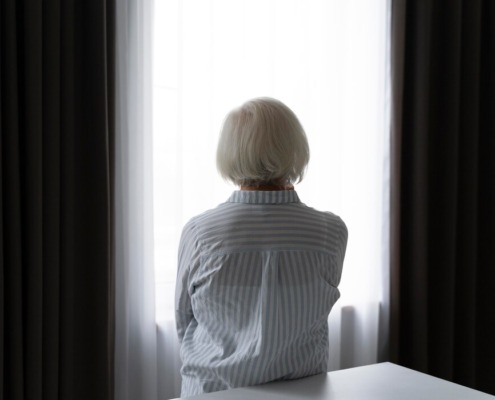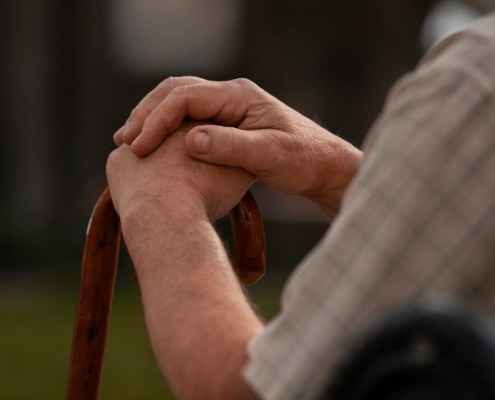Retirement Homes and Mental Health: A Crucial Conversation
 As we age, our mental health becomes a top priority. It’s no secret that retirement years can bring significant changes to our lives, including loneliness, isolation, and feelings of purposelessness. However, living in a supportive environment can have a positive impact on our mental health and overall well-being.
As we age, our mental health becomes a top priority. It’s no secret that retirement years can bring significant changes to our lives, including loneliness, isolation, and feelings of purposelessness. However, living in a supportive environment can have a positive impact on our mental health and overall well-being.
This article aims to shed light on this under-discussed topic of mental health in senior living facilities. We delve into the significance of mental health in these establishments, explore the common mental health issues faced by residents, and discuss potential solutions and strategies to foster a healthy environment in retirement homes.
Summary:
- Mental Health and Aging
- Promoting Mental Health in Senior Living Homes
- Social Connection and Seniors
- Physical Activity and Mental Well-being
- Mental Stimulation and Cognitive Health
- Maintaining Independence and Autonomy
- Supportive Senior Living Communities
1. Mental Health and Aging
The prominence of mental health in retirement homes warrants attention. According to the National Institute on Aging, 20% of older adults experience mental health concerns, with depression being the most common.
As people age, they often face a myriad of changes – from physical health challenges to the loss of loved ones and the transition into assisted living or retirement homes. These changes, while common, can significantly impact an individual’s mental health, potentially leading to conditions such as depression, anxiety, and cognitive decline.
Furthermore, the social isolation often experienced in retirement homes can exacerbate these issues, making mental health care not merely important, but essential. By prioritizing mental health in retirement homes, we can ensure that our elders not only live longer but also enjoy a higher quality of life, marked by happiness, fulfillment, and psychological well-being.
2. Promoting Mental Health in Senior Living Homes
Senior living communities have a crucial role to play in promoting mental health among their residents. These communities are uniquely positioned to create environments that foster social interaction, provide stimulating activities, and offer mental health support services.
Additionally, providing access to mental health professionals for regular check-ups and therapeutic sessions can help detect and treat problems early. Lastly, creating an environment that encourages open conversation about mental health can help destigmatize these issues, making it easier for residents to seek help when needed.
By taking these steps, senior living communities can significantly contribute to the mental well-being of their residents, ensuring they enjoy their golden years with the peace and happiness they deserve.
3. Social Connection and Seniors
Social connection holds a significant place in the overall well-being of seniors, particularly those residing in retirement homes. As humans, we are inherently social beings, and this need for connection does not diminish with age. In fact, it becomes even more critical as changes associated with aging, such as retirement, the loss of loved ones, and relocation to a retirement home, can often lead to isolation.
Regular social interactions can significantly enhance mood, stimulate cognitive functioning, and improve quality of life. Retirement homes, therefore, should prioritize creating opportunities for social engagement. This can be achieved through communal dining areas, group activities, and social events.
4. Physical Activity and Mental Well-being
Physical activity plays a pivotal role in promoting mental well-being among seniors. Regular exercise has been proven to not only maintain physical health but also boost mood and alleviate symptoms of depression and anxiety. It stimulates the release of endorphins, often referred to as ‘feel-good hormones,’ which can help seniors feel more energetic and happier.
Additionally, physical activities like group exercises or walking clubs can provide additional socialization for seniors. Retirement homes that incorporate regular, accessible physical activities into their residents’ daily routines are investing in their mental as well as physical health.
5. Mental Stimulation and Cognitive Health
Engaging in stimulating activities such as puzzles, reading, writing, or playing a musical instrument can help keep the mind sharp and delay or mitigate the effects of cognitive decline. Additionally, learning new skills or pursuing hobbies can provide a sense of purpose and accomplishment, which contributes positively to mental health.
Retirement homes can play an instrumental role by providing a range of cognitively engaging activities tailored to their residents’ interests and abilities. By doing so, they not only promote cognitive health but also create a vibrant, engaging community that supports the overall mental well-being of its residents.
6. Maintaining Independence and Autonomy
 It’s important that residents feel they have control over their daily lives, from simple decisions like what to wear or eat, to more significant choices regarding their care and activities. Retirement homes can support independent living by offering a variety of options and encouraging residents to make their own decisions wherever possible.
It’s important that residents feel they have control over their daily lives, from simple decisions like what to wear or eat, to more significant choices regarding their care and activities. Retirement homes can support independent living by offering a variety of options and encouraging residents to make their own decisions wherever possible.
Additionally, providing resources and assistance to enable residents to perform tasks independently, such as modified utensils for those with physical limitations, can further enhance their sense of autonomy. A balance between needed care and personal autonomy can greatly contribute to the overall mental well-being of seniors, making them feel valued and capable.
7. Supportive Senior Living Communities
Retirement homes that prioritize a supportive environment for mental health are more likely to foster a sense of safety and belonging among residents. In this way, they can significantly contribute to the overall mental well-being of the seniors in their care. Choosing to live in a senior community can have a positive impact on one’s mental health during the retirement years.
If you or your loved one are considering a senior living community in Wauwatosa, we invite you to explore Harwood Place. With a focus on promoting mental and emotional well-being, it’s the perfect place to call home. Call Harwood Place to learn more about a supportive Wauwatosa senior living community. Let us help you make the most of your golden years!




 Dr. Champalal Gupta, MD
Dr. Champalal Gupta, MD



